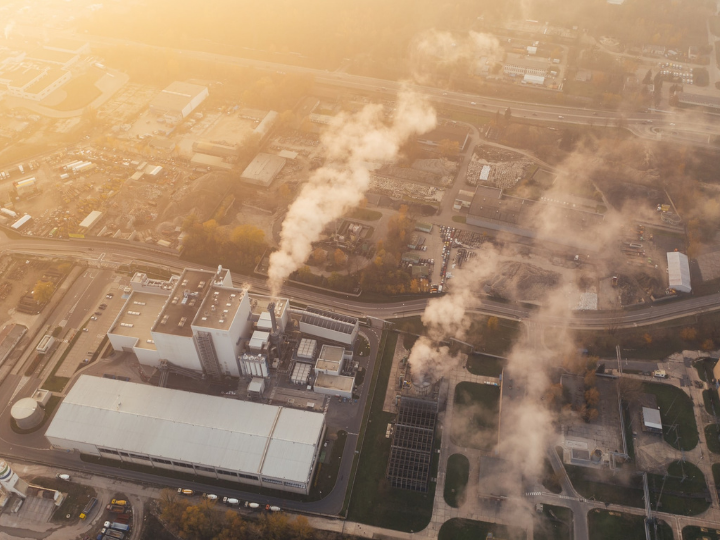by Michael Bloss*
Europe’s recent push to reduce its greenhouse gas emissions is desperately needed, but it is happening too slowly, with many key measures laid out in the Fit for 55 climate package not coming into force until the 2030s, writes Michael Bloss.
In the words of the UN Secretary-General, Antonio Guterres, the latest IPCC report is “Code Red for humanity”. This Code Red for humanity means the European Union has the obligation to speed up cutting its emissions and must show higher ambitions to address the urgency.
This obligation to speed up and protect the right to a safe environment has been backed up by various courts around Europe including in the Netherlands, France and Germany.
Although the Fit for 55 package is a step in the right direction, it suggests implementing important measures only after 2030, such as phasing out free allowances in the EU-Emission Trading System by 2036, the phase-out of combustion engines by 2035 at the earliest or a full EU minimum tax on kerosene and maritime fuel by 2032.
European Commission President Ursula Von der Leyen has shown with the European Green Deal that she is ready for something new, but we need to speed up with a climate action plan if we are to answer the planet’s code red call.
Deliver a European coal phase-out and unleash renewables
First, we must prioritise a European coal phase-out by 2030. Every year, there are still more CO2 certificates issued on the EU emissions market than there is demand from heavy polluters.
In 2019, this oversupply was estimated at around 250 million tonnes of CO2, and the COVID pandemic has certainly increased this number. The Emissions Trading System Cap must be adjusted to meet realities, not to fuel an already oversupplied market. This is something we can do immediately.
Furthermore, the IPCC’s sixth assessment report and the International Energy Agency’s net-zero pathways unequivocally link fossil fuels to climate change, urging a quick phase-out. The EU and several European governments already committed via the G7 to eliminate inefficient fossil fuel subsidies by 2025. This promise must be met!
While we phase out coal, we need to scale up the deployment of renewables – and much faster than previously planned. To speed up the transition, the Commission should introduce a European solar obligation linked to the EU’s renovation wave.
By 2030, the EU plans to renovate around 35 million buildings to make them more energy-efficient. Solar installations must become the standard for new buildings and major renovations. This could turn millions of houses into small green power plants by 2030.
Today, most citizens can already install solar energy competitively. For the rest, the money should be made available from the NextGenerationEU fund.
The industry is ready, but a clear set of rules is missing
But it is not only the energy industry that needs to step up a gear. Car and steel manufacturers, for example, are already showing that the green transformation is technically possible and that they are ready for it. What is needed is a clear set of rules and the right incentives.
In the automobile sector, Daimler, Volvo & Co want to switch to electric vehicles before or by 2030. So why is the EU waiting until 2035? By doing so, we will only lose our role as pioneers by unnecessarily wasting time.
The planet’s code red, also means we need to speed up the transition of the industrial sector. If we follow the Commission’s proposal, industry would continue receiving free CO2 certificates until 2036. Without changing course, this would mean industry would continue to pollute for free after potentially crossing the 1.5°C target in the early 2030s.
We must move faster. By phasing out free allowances and introducing a Carbon Border Adjustment Mechanism by the mid-2020s we can create a real price singal for industry to decarbonise.
The tens of billions of additional revenues a year should then be used to directly support the decarbonisation of industries via a significantly increased innovation fund, climate contracts (Carbon Contracts for Difference, standards and public procurement of green industrial products).
The Green Deal only works socially
Europe has become more unequal and the cost of living has risen sharply, especially since the COVID crisis. Yet, the Commission’s Fit for 55 package does not sufficiently consider the social impacts and, therefore, we run the risk of turning people against crucial climate measures.
The Europe-wide CO2 price on transport and buildings especially could increase the cost of living and contribute to growing inequalities.
Rather than making life more expensive for the general public, the EU should invest in renovating social housing, schools and hospitals, investing in public transport and by steering the automobile sector to produce affordable electric vehicles by 2030 at the latest.
We just have this one last chance to tackle the climate crisis
Time to slow down the climate emergency is running out. The latest IPCC report has been the latest evidence that business as normal is no longer possible. The pandemic has shown that faced with a crisis, we can act fast to protect lives and livelihoods.
We need the Green Deal to be Europe’s emergency response. I am convinced that speeding up measures to reduce greenhouse gas emissions is the only way to make the Green Deal a success and answer the planet’s red alert call.
*German member of the European Parliament and climate and industrial policy spokesperson of the Greens/EFA
**first published in: www.euractiv.com




 By: N. Peter Kramer
By: N. Peter Kramer
